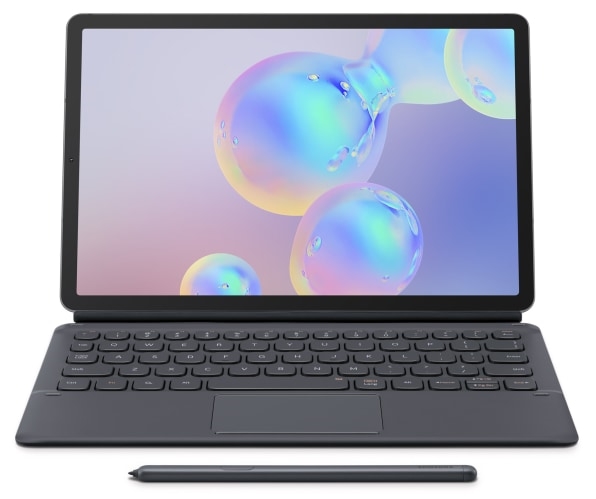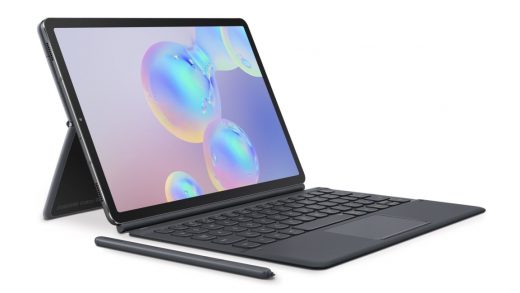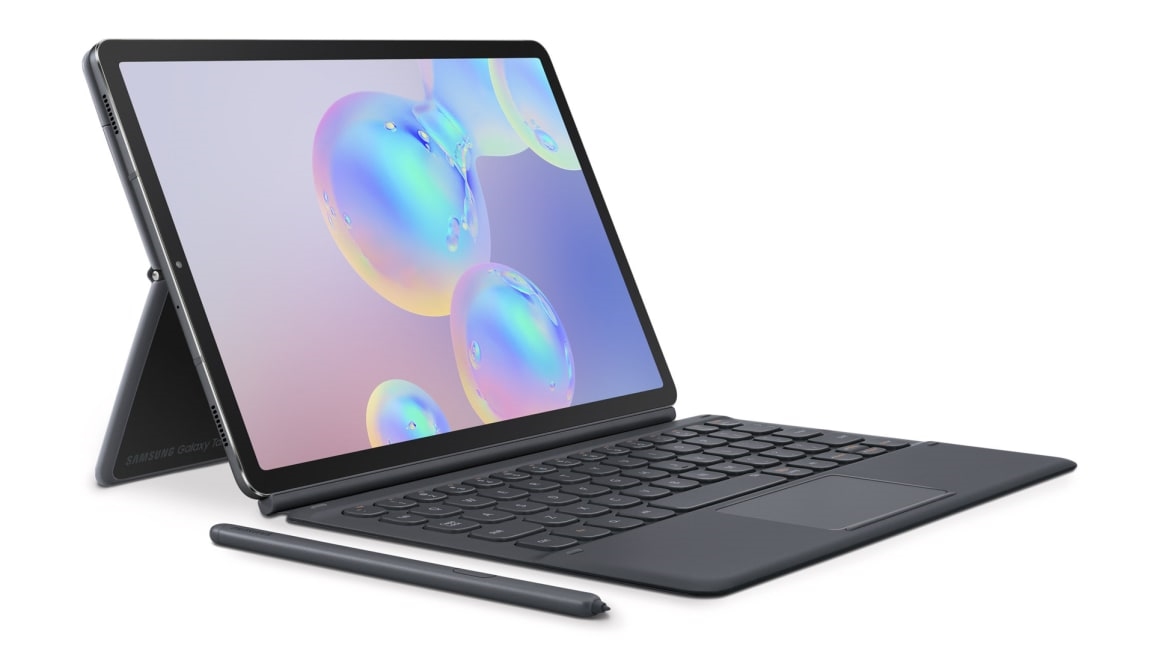Samsung’s new tablet picks up Galaxy Note, iPad Pro, and PC features
Sometimes it seems like there’s no longer a market for high-end tablets—just ones for the iPad Pro and for Windows tablets, such as Microsoft Surface, that are as much PC as tablet. Samsung, however, says that it remains enthusiastic about the prospects for its fanciest Android tablets. A year after releasing the Galaxy Tab S4, it’s back with the Galaxy Tab S6–which, like its predecessor, has a 10.5? Super AMOLED display and starts at $650. It’s available for preorder as of August 23 and will be in stores on September 6. (There wasn’t a Galaxy Tab S5, just a lower-cost and more basic model called the Galaxy Tab S5e.)

Unlike the Tab S5e, the S6 comes with an S Pen—a jumbo-sized equivalent of the one that’s the signature feature of Samsung’s Galaxy Note phones. Besides letting you sketch, jot, and manipulate on-screen items, it doubles as a remote control that can perform feats such as snapping selfies and stepping through presentations, a feature introduced with the Galaxy Note 9. Along with letting you press its button to remote-control the tablet, the Tab S6 S Pen also lets you wield the stylus like a tiny baton to perform “air actions” for such jobs as controlling the camera and playing music.
The Galaxy Tab S6’s S Pen clings magnetically to the tablet and charges wirelessly while it’s doing so—nifty capabilities that are a lot like those of Apple’s newest iPad Pro models and Pencil stylus, except the S Pen sticks to an indentation on the back of tablet rather than along its edge. Samsung says that 10 minutes of charging will provide the S Pen with enough juice for all-day use—an advantage over the far dinkier S Pen that comes with the Galaxy Note 9, which only lasts for about half an hour between charges. (The Galaxy Tab S4’s S Pen didn’t require charging, but the only form of storage Samsung provided was an ungainly, inkwell-like outboard holder on the optional Book Cover Keyboard case.)
One of the defining features of the Galaxy Tab S4–and a meaningful departure from the iPad Pro—was DeX, a software interface that sports floating windows, supports a mouse, and generally approximates the look and feel of a desktop operating system such as Windows or MacOS. It’s back in the Galaxy Tab S6. And the new version of the $180 Book Cover Keyboard case, which lets you use the tablet in laptop-like orientation, now includes a trackpad, permitting you to mouse around DeX without using a mouse. The keyboard’s top row of keys now double as PC-style function keys and include a DeX key, making it easier to flip between tablet and laptop modes.
Lastly, Samsung has ignored everyone who sneers at the idea of taking photos with a tablet—I’m with the company on this one—and upgraded the new tablet’s camera system with a second rear camera with a 123-degree field of view, approximating that of the human eye.
When I tried the Galaxy Tab S4, I found it to be a pretty likable tablet. When used with DeX in the Book Cover Keyboard case, however, it was intriguing but a tad unfinished. I said that a successor with a trackpad-equipped keyboard case would help—and voilà, here it is in the Tab S6. I haven’t yet had a chance to use the new tablet, though, so I’m not sure how much DeX has evolved.
But we already know that the iPad will do considerable evolving with its upcoming iPadOS 13 software upgrade, which will arrive within weeks of the Galaxy Tab S6’s debut. Without being as obviously PC-esque as DeX, the new iPadOS will go a long way toward giving the iPad the power it needs to be a full-time computer for more people. And iOS developers have embraced the possibilities of the iPad with a zeal that most Android developers have never shown for big-screen tablets.
Judging from Apple’s recent financial results, the company’s ongoing iPad Pro drive is working. Samsung, however, is almost alone among makers of Android hardware in pushing the platform to PC-like limits in tablet form—and while I’m glad it’s doing so, it does feel like a lonely quest.
(22)



